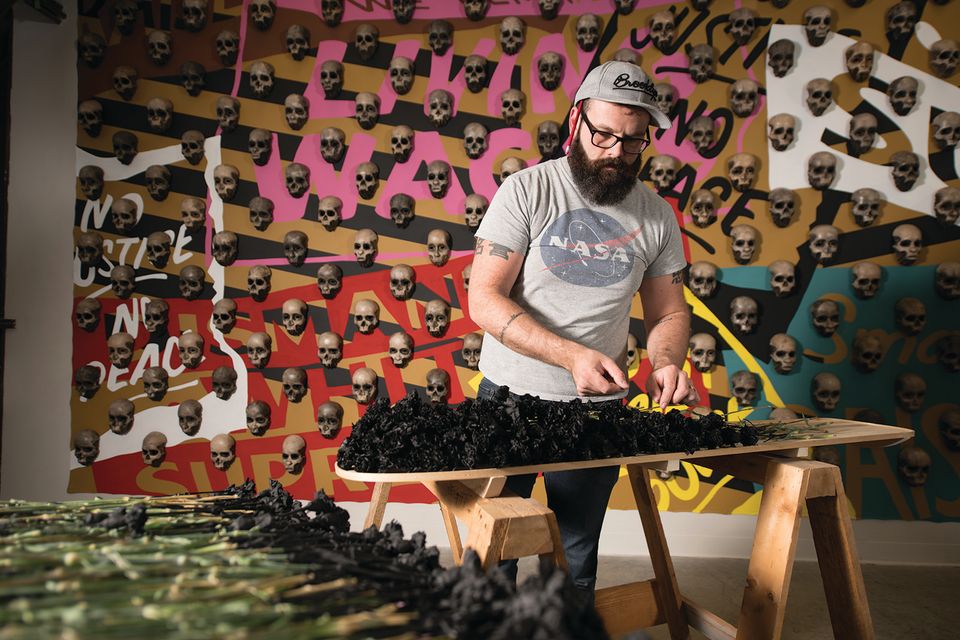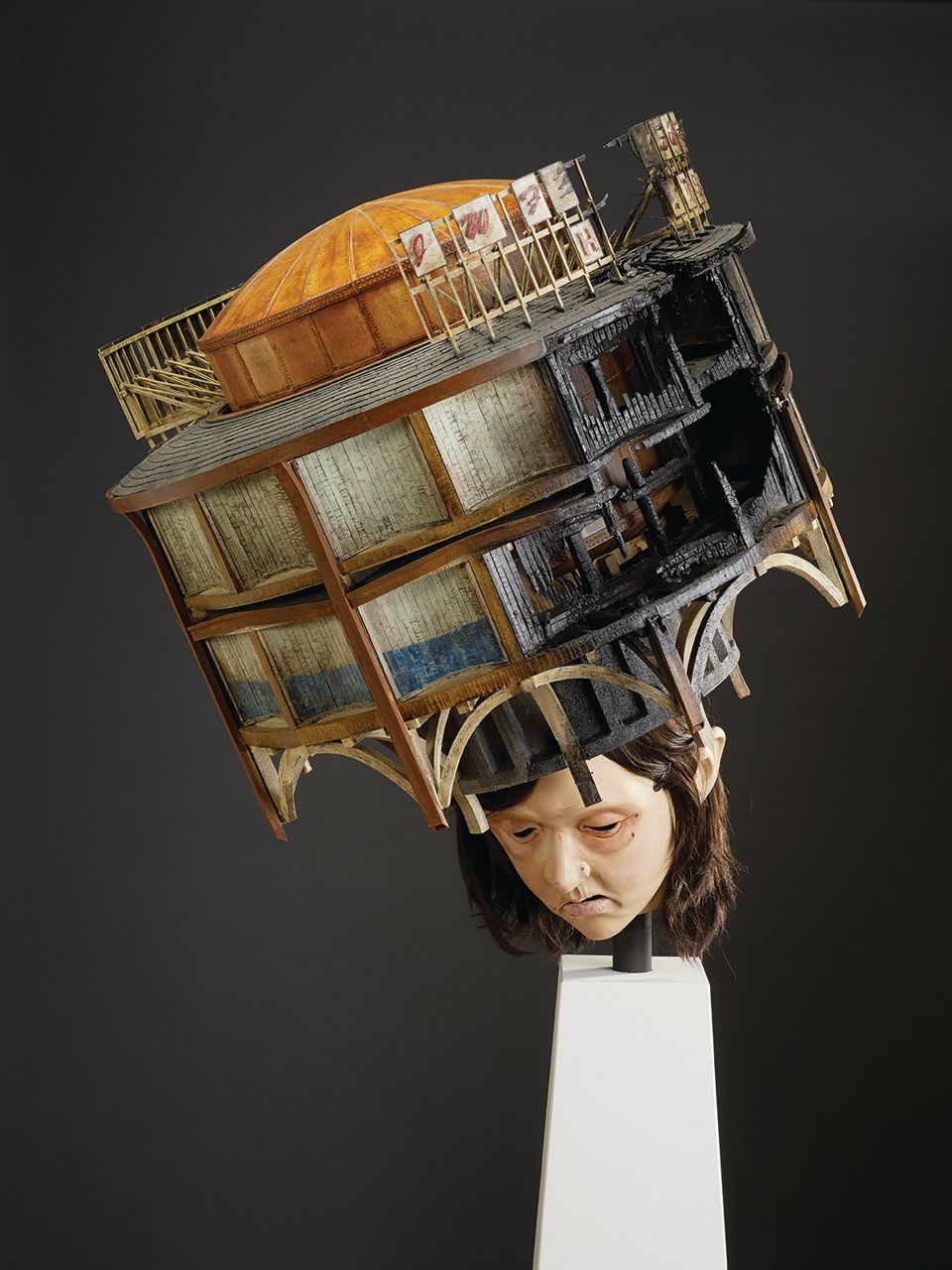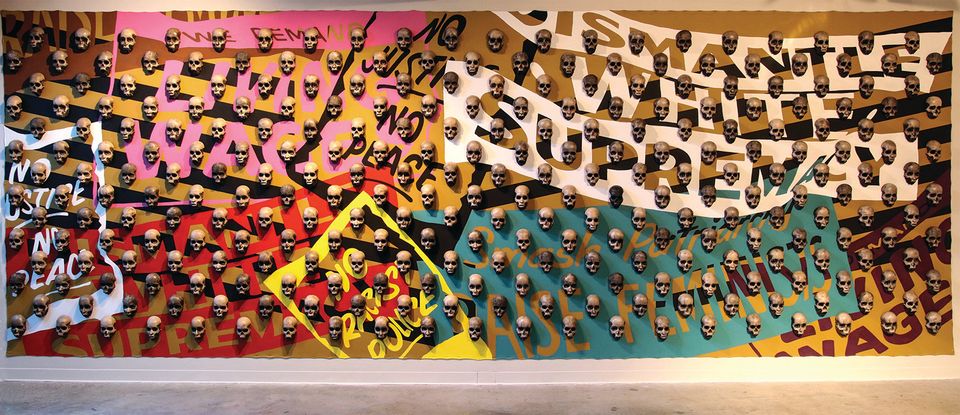Dustin Farnsworth (born 1983, Lansing, MI) carves wood into evocative depictions of human suffering. Much of his early work was influenced by the collapse of the American automobile industry, which he witnessed firsthand. Rendering subjects within desolate architectural settings—some recognizable, others more abstract and geometric—the structures have evolved into cumbersome headdresses, obscuring and overwhelming his figures. Demonstrating the extraordinary versatility of wood as a sculptural medium, the lifelike quality of his work is both captivating and disconcerting. His subjects appear pained and dejected, and they make manifest the economic and emotional trauma of an entire generation. In recent work, Farnsworth uses less figural and more abstract forms to address pressing social issues, influenced by protests and communities torn apart by police shootings. His piece XLIII, for example, references the forty-three people under eighteen who were killed by police officers in the United States in 2015.
In 2010, Farnsworth received a BFA in woodworking and functional art from the Kendall College of Art and Design in Grand Rapids, Michigan. Since then, he has held residencies at numerous institutions, including the Arrowmont School of Arts and Crafts in Tennessee, the Penland School of Crafts and the McColl Center for Art + Innovation, both in North Carolina. His work has been shown in solo exhibitions at the Huntsville Museum of Art in Alabama and the Cameron Art Museum in North Carolina, both of which possess his work in their permanent collections. His most recent exhibition, Dustin Farnsworth: The Devil’s Work (2018), was held at the 701 Center for Contemporary Art in Columbia, South Carolina.

















